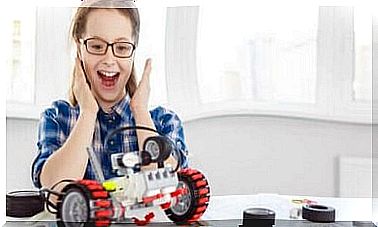12 Ways Dictation Benefits A Child’s Learning

How many times have you spoken to your child and noticed that he or she does not understand or pay attention to your message? To change this unwanted situation, you can use a variety of tools, one of which is dictation. You’ll probably be surprised at how simple and effective the use of dictation is. Below we list 12 ways in which dictation benefits a child’s learning.
Utilizing dictation in a child’s learning
For the most part, dictation is likely to remind you of your own school hours as well as the boring and routine exercises a child has to perform. However, dictation can also create positive and pleasant moments when it can be used properly. For example, dictation can be made into a fun activity that makes a child laugh and promotes the development of his or her sense of humor.
Dictation is simply about an adult reading a text to a child who writes down what they hear. Below we tell you what your child can learn with this simple tool.
12 ways in which dictation benefits a child’s learning
1. Improving logical thinking
The child recognizes and reproduces words that together create meaning and form consistent sentences. Utilizing dictation thus improves the child’s logical understanding through understanding the semantic structure of the text.
2. Stimulating creativity
Dictation can be utilized to stimulate a child’s creativity by using words to improve his or her vocabulary. This also contributes to the child’s ability to express their feelings and thoughts.

3. Improving the ability to concentrate
Using dictation is especially helpful with overworked or attention deficit children. Namely, dictation exercises require concentration, attention, and disregard for external stimuli.
4. Exercising memory
Dictation helps to practice a child’s short-term memory, as the child needs to remember whole sentences to write them down. In addition, the exercises expand the child’s vocabulary. The child learns new words that become part of his subconscious for later use.
5. Teaching teamwork
When dictation is utilized among multiple children, it helps teach teamwork. In this case, one of the children dictates the text to the others, and the members of the group must cooperate with each other. This also helps to strengthen the relationship between children.
6. Improving reading comprehension
A child who understands what they are reading also has a better ability to understand other people. Every time a child studies or reads a book for their own enjoyment, he or she understands things better and is able to embrace concepts more easily.
7. Expanding vocabulary
Utilizing dictation expands a child’s vocabulary. As a child’s self-expression improves and he or she gains more self-confidence in his or her speech, it will be easier for him or her to communicate and converse with others.

8. Imagination development
The more imaginative a text containing more different terms, the more it develops the child’s imagination. The child’s ability to imagine and dream expands as a result.
9. Ease of reading
Writing dictated text is practicing literacy. Literacy is very important for a child’s future, as he or she will read at school, at work and in his or her free time.
10. Correcting Your Own Behavior
The child learns to correct their own behavior and finds mistakes and failures to be a part of life. It is important that the child learns to correct the mistakes he or she has made without affecting his or her self-confidence and self-esteem.
11. Improving listening comprehension
Dictation also improves listening comprehension. When a child actively listens to what is being said to him, he learns to better understand what others are saying.
12. Encourage reading
It is good for a child to adopt a reading habit as he or she has to read through his or her life in different situations. Dictation helps the child to better understand the world around them and to expand their perspective and knowledge.









